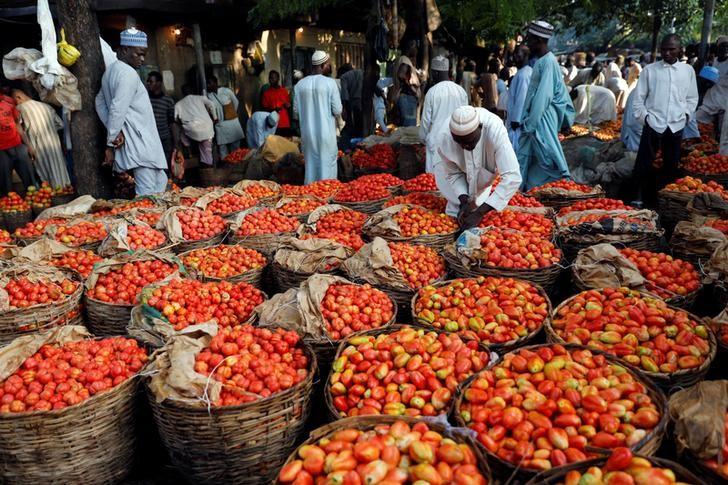Nigeria’s National Bureau of Statistics (NBS), on Tuesday, published the consumer price index, showing a third consecutive disinflation with inflation growth slowing down by 0.06% at 11.02% in the month of August, from 11.08%.
This, the NBS noted in its report, is “despite several pronouncements regarding restrictions on the import of some food items, minimum wage, and the recent border closures.
“It is important to note that with respect to the latter, the border was only closed 20 August 2019 with only 11 days of 31 days for any significant impact to be felt either way on prices,” the report added.
Recall that the Central Bank of Nigeria (CBN), recently implemented its decision to bar importers of milk from accessing the official foreign exchange window; following which there was a further pronouncement by President Muhammadu Buhari.
The report, however, links the constrained growth across the major indices, except urban inflation, to the onset of the “harvest season and existing weak consumer demand and their natural effect to slow down food and other prices will also play a major role in determining the direction of inflation.”
On a month-on-month basis, the Headline index for the period rose 0.99%, 0.02% rate lower than the 1.01% rate recorded in July 2019.
Urban inflation rate climbed 11.48% up year-on-year from 11.43% recorded in July, while the rural inflation increased by 10.61% from 10.64% in July 2019; while on a month-on-month basis, the urban index increased by 1.04% in August 2019, down by 0.03% from 1.07% recorded in July 2019, at a time the rural index also rose by 0.93%.
The corresponding 12-month year-on-year average percentage change for the urban index is 11.62% in August 2019, which is less than 11.64% reported in July 2019, while the corresponding rural inflation rate climbed 10.95% compared to 10.97% recorded in July 2019.
Composite food index for the period rose by 13.17% to 13.39% in July, caused by increases in prices of oils and fats, meat, bread and cereals, potatoes, yam, and other tubers and fish.
Food sub-index on a month-on-month basis, increased by 1.22%, down by 0.04% points from 1.26% recorded in July; following which annual rate of change in the sub-index for the 12-month period ending August 2019 over the previous 12-month average was 13.458%, 0.002% points from the average annual rate of change recorded in July 2019 (13.46%).
“Given the continuous stability in the exchange rates, the ”All items less farm produce” or Core inflation, which excludes the prices of volatile agricultural produce stood at 8.68 percent in August 2019, down by 0.12% when compared with 8.8% recorded in July 2019.
“On month-on-month basis, the core sub-index increased by 0.67% in August 2019. This was down by 0.1% when compared with 0.77% recorded in July,” the highest increases of which were recorded in prices of Cleaning, Repair and hire of clothing, Repair of household appliances, hospital services, glass and tableware, as well as household utensils, Passenger transport by air and repair and hire of footwear.
In August 2019, food inflation on a year on year basis was highest in Kebbi at 17.20%; Kano, 16.08%; and Adamawa, 15.95%; while Kogi recorded the slowest rise at 8.97%; Katsina, 9.64%; and Bayelsa, 10.22%.
MoM, food inflation was highest in Akwa Ibom, 2.56%; followed by Enugu’s 2.37%; and Ogun, 2.17%; and slowest in Delta, 0.03%; while Benue recorded 0.05% rise; and Kogi, 0.09%.
Trending Today
Menu








